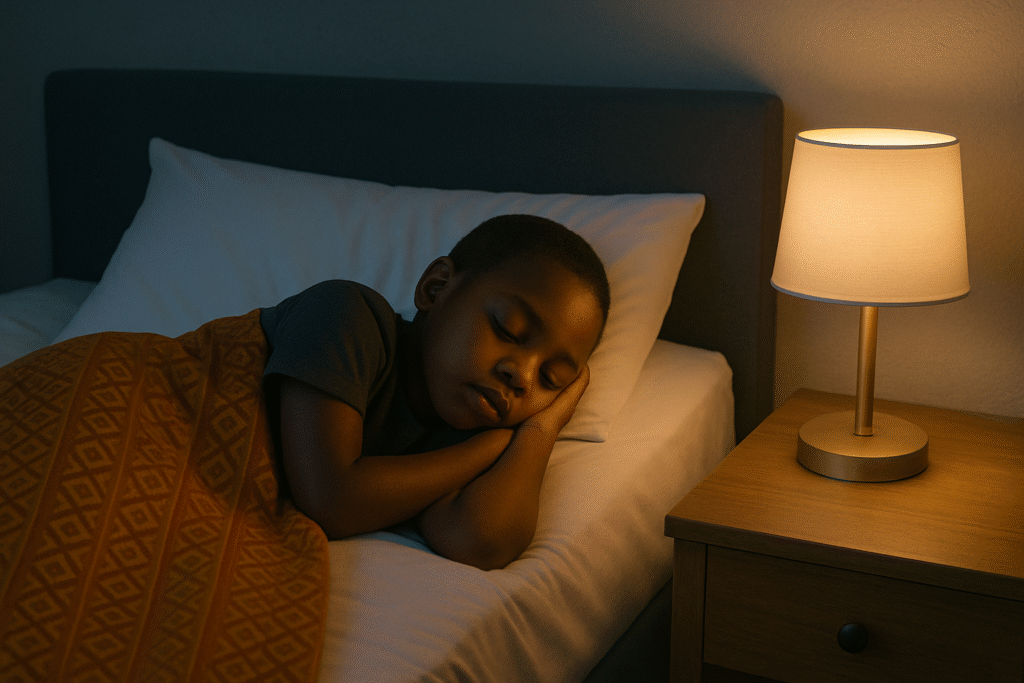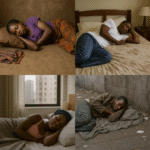Children’s Sleep in Africa: Traditions & Modern Challenges

Sleep is essential for children’s growth, learning, and overall wellbeing. Yet in Africa, children’s sleep patterns are shaped not only by biology but also by cultural practices, family structures, and modern pressures. While traditional communities often embraced rhythms that supported healthy rest, urbanization, schooling demands, and technology are changing how African children sleep.
This article explores the cultural traditions surrounding children’s sleep in Africa, the modern challenges affecting rest, and practical steps families can take to support healthier sleep for the next generation.
Why Sleep Matters for Children
During sleep, children’s bodies release growth hormones, build immunity, and strengthen memory. For school-aged children, adequate sleep improves concentration, behavior, and academic performance. The World Health Organization recommends 9–12 hours of sleep for children and 8–10 hours for teenagers. Yet many African children today fall short of these targets.
Traditional African Practices That Supported Sleep
-
Bedtime Rituals
In many African cultures, evening storytelling, lullabies, or drumming were used to calm children before bed. These rituals not only promoted rest but also strengthened cultural identity and family bonds. -
Communal Sleeping
Children often slept alongside siblings or parents, fostering security and comfort. This closeness reduced nighttime anxiety and created predictable sleep routines. -
Natural Rhythms
In rural areas, children rose with the sun and slept shortly after dusk. Limited artificial light meant rest followed natural circadian rhythms, supporting deep, restorative sleep.
Modern Challenges to Children’s Sleep in Africa
-
School Demands and Early Rising
In cities, children often wake up before dawn to prepare for long commutes to school. Early rising cuts into total sleep hours, especially when combined with late-night homework or lessons. -
Technology and Screen Time
With increased access to smartphones and TV, many children stay up late watching cartoons, playing games, or scrolling social media. Screen light disrupts melatonin, delaying sleep. -
Urban Living Conditions
Overcrowded housing, noise pollution from traffic or generators, and heat in poorly ventilated rooms all interfere with restful sleep. -
Economic Pressures
In some households, children support family businesses or farming, leaving little time for rest. Adolescents may also take up jobs after school, sacrificing sleep.
Cultural Beliefs and Sleep Expectations
African proverbs often reflect community attitudes toward children’s rest. For example:
-
An Akan saying: “If a child sleeps, he grows.”
-
Yoruba wisdom: “A child that wakes with the cock will be strong.”
These sayings highlight the balance between valuing sleep for growth while also emphasizing discipline and early rising. The challenge today is ensuring children rest enough without being burdened by unrealistic expectations.
The Impact of Poor Sleep on African Children
-
Academic Struggles: Sleep-deprived children find it harder to concentrate in school.
-
Health Risks: Lack of rest weakens immunity, increasing susceptibility to malaria, flu, and other infections.
-
Emotional Wellbeing: Poor sleep fuels irritability, anxiety, and depression.
-
Growth Issues: Inadequate sleep interferes with hormone release, slowing physical development.
Practical Tips for Families
-
Reintroduce Bedtime Rituals
Parents can bring back storytelling, prayers, or songs to create calming nighttime routines. -
Limit Screen Time
Encourage children to switch off devices at least an hour before bed. -
Create Sleep-Friendly Environments
Even in crowded homes, parents can improve rest by reducing noise, using mosquito nets, and ensuring proper ventilation. -
Balance School and Sleep
Schools and parents should work together to avoid excessive homework that cuts into children’s rest. -
Educate Families on Sleep
Community health programs should highlight children’s sleep as a foundation of health, just like nutrition or vaccination.
Conclusion
Children’s sleep in Africa reflects a mix of tradition and modernity. While cultural practices once supported healthy rest, urbanization, schooling pressures, and technology now challenge sleep routines. By blending traditional wisdom with modern awareness, African families can create healthier sleep environments that ensure children grow strong, succeed academically, and enjoy emotional balance.
Written by Fawzi Rufai, Medically Reviewed by Sesan Kareem



